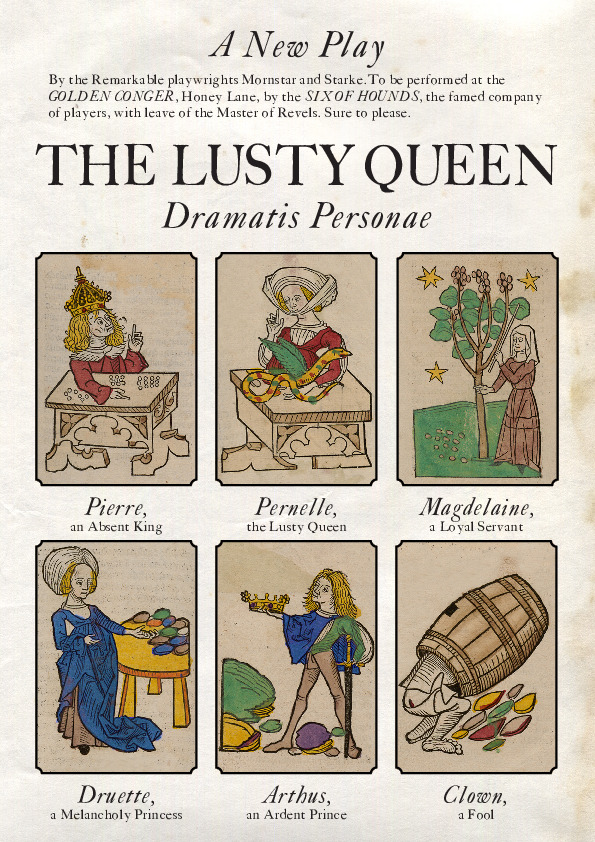I’m on a study project to improve my understanding of roleplaying games. To this end, I already have two reading projects, A Game Per Year and An Adventure Per Year. This is the third, with the goal of reading or playing 52 games made in the last few years. Originally I considered making this “A New RPG Per Week” and that’s where the number 52 comes from, even though a weekly schedule is probably not within my abilities.

The Lesser Players Tale is a Fastaval scenario by Lizzie Stark and Jason Morningstar. It won Best Scenario this year.
It’s a very well crafted scenario built around a troupe of Renaissance actors performing their new play The Lusty Queen to different audiences. As the crowd changes, so must the play adapt to their tastes.
The scenario has been crafted so that much of the workshopping required for the participants to learn how to do the play has been integrated into the play experience itself, a neat trick that I always admire in both larps and freeform. The scenario teaches a lot of what you need to play it while you play it although there are exercises in the beginning too.
Like Fastaval scenarios tend to be, The Lesser Players Tale is a very highly polished, specific design created to deliver a specific play experience. It’s light, fun and literate, playing around the tropes of Renaissance theater.
The experience is not totally linear. Rather, there are a couple of decision points that can affect the substance of the experience and how the scenes progress.
This made it fun to read for me because I play in a tabletop campaign that uses a lot of the background of Elizabethan era theater as its background. The grubby, freewheeling hustle that typified theater in that time is very much present in the scenario.
One touch that I found especially funny is that all actors use the names of their parts, a choice liked by the wanted criminals among them. It’s a good piece of simplifying design and the joke is relevant to in-game concerns.
The text of the scenario features cultural notes where the designers explain that certain choices have been made because of their American background and assumptions and may be changed if a local facilitator, for example at Fastaval in Denmark, feels that this is necessary. This is interesting because the effect of local culture on how design works is very rarely, if ever, acknowledged in roleplaying game texts.